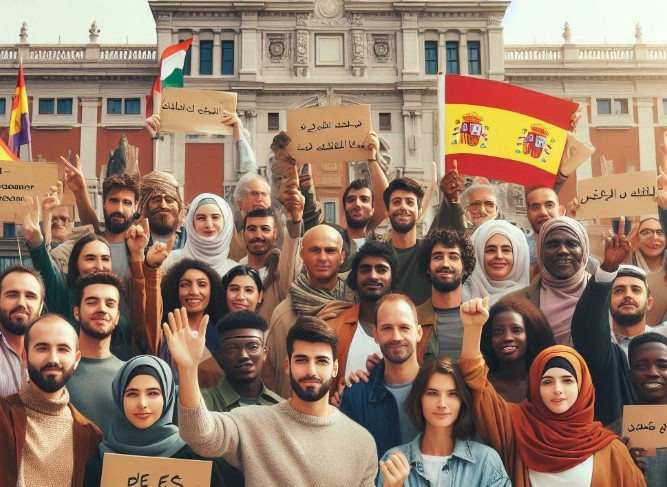The immigration reform came into force on May 20, 2025. Although progress has been made in regularizing people in irregular administrative situations and moving them in the right direction, we believe that the new regulations remain inadequate and exclude part of the migrant population in Spain. This has serious consequences for their lives and their access to rights.
As an institution dedicated to supporting migrants on their path to equal rights and full inclusion, we must positively assess some of the measures included in this regulation, such as reducing the time required to apply for social roots or improving socio-formative roots. However, we cannot ignore that the regulation also contains requirements that perpetuate irregularities for long periods and create situations of vulnerability.
This new regulation penalizes asylum seekers whose applications are rejected, as the time they spend waiting for a response is not counted as their length of stay for access to root-based permits. Many are forced to abandon their application in order to count the time needed to process their application as quickly as possible. In other words, people who have lived for one or two years with a residence and work permit lose all their rights once their application is resolved and are not recognized as persons who can demonstrate this length of stay for future regularization processes. This results in an unfair and avoidable loss of rights that also hits hard those who have already worked legally and contributed to society.
How is it possible that the regulations require at least two years of living in an irregular situation to initiate the regularization process? What does this mean in practice? It means living in fear, without full access to rights, in precarious conditions, without the possibility of renting an apartment, signing a work contract, or regularly visiting a health center.
These restrictions affect people with names, stories, and families who actively participate in the country’s social life. They enrich our social, cultural, and community fabric by creating diversity, initiative, and essential connections for building coexistence and supporting key sectors of our economy—be it in nursing, agriculture, construction, cleaning, catering, or home care.
In the first few months of this year, thousands of people were forced to make important life decisions without knowing how the new regulation would be interpreted. While the Ministry of Integration has published well-intentioned instructions, we believe they must include more far-reaching measures to ensure the necessary legal certainty.
Spain must promote a migration policy that supports the full rights of those who are part of its present and future. Migrants should be recognized as an integral part of citizenship and as fundamental protagonists of our common project. Equal access to rights must not depend on a residence permit; it must be a guiding principle of every democratic society. Today more than ever, we need a people-centered migration policy that recognizes the dignity of all human beings without exception. A policy that understands that rights are not granted: they are guaranteed.




